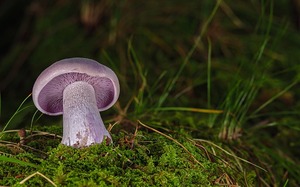- الكلمات - #mushrooms #blue meanie mushroom
-
- آخر تحديث ٩ مارس، ٢٠٢٢ تعليق ٠ , ١٥٤ views, ٠ مثل
- Canada - احصل على الاتجاهات
More from mungus mungus
More in Politics
Related Blogs
أرشيف
الجسم
The Turkish tail is a species of mushroom that grows on dead logs worldwide. It is called the turkey tail because its brown and tan rings look like turkey tail feathers. Its scientific name is Trametes versicolor or Coriolus versicolor.
In traditional Chinese medicine
It is known as Yun Zhi. In Japan, it is known as kawaratake (a fungus on the roof). There are many other blue meanie mushroom of Trametes mushrooms. It would be difficult to distinguish between the turkey tail and other species of Trametes mushrooms without the use of special tests.
- The Turkish tail has been used in traditional
- Chinese medicine to treat lung diseases for
- many years In Japan, turkey tail has
- Been used to strengthen the immune system
- When given standard cancer treatment
What is PSK?
Polysaccharide K (PSK) is a well-known active compound in turkey tail mushrooms. In Japan, PSK is a certified mushroom product used to treat cancer.
How is PSK given or taken?
- PSK can be
- Considered as a
- Tea or capsule form
Are there any laboratory or animal studies done using PSK?
In a laboratory study, tumor cells were used to test a substance to determine its potential anti-cancer effects. In animal studies, tests are performed to determine if a drug, procedure, or treatment is safe and effective in animals. Laboratory and animal studies are done before something is tested in humans.
Laboratory and animal studies have examined the effects of PSK on antibodies, including immune cells called natural killer cells and T-cells. See the Laboratory / Animal / Pre-Clinical Studies section of the Medicinal Mushrooms health version for https://mungus.com on laboratory and animal studies conducted using PSK.
Are there any PSK studies done for people?
PSK has been studied in patients with stomach cancer, breast cancer, colorectal cancer, and lung cancer. It has been used as an adjuvant therapy for thousands of cancer patients since the mid-1970's. PSK has been used safely for people for a long time in Japan and few side effects have been reported.
Stomach cancer
Studies show that the use of PSK as an adjuvant treatment in patients with stomach cancer may help to repair the damage caused by chemotherapy and strengthen the immune system.
PSK studies as an adjuvant
- Therapy for
- Stomach cancer
- Include the following
A randomized clinical trial in Japan conducted between 1978 and 1981 included 751 patients who underwent surgery for stomach cancer. After surgery, patients receive chemotherapy with or without PSK.
On average, patients who received chemotherapy with PSK lived longer than those who received blue meanie mushroom alone. The researchers believe it is possible to predict which patients would benefit the most from PSK depending on the number of granulocytes and lymphocytes in the patient's blood.
الصور
خريطة
-
المواقع على MyWorldGo
معلومات الموقع
- موقعك: Canada - احصل على الاتجاهات
- العنوان المنسق: Canada
- بلد: Canada











تعليقات